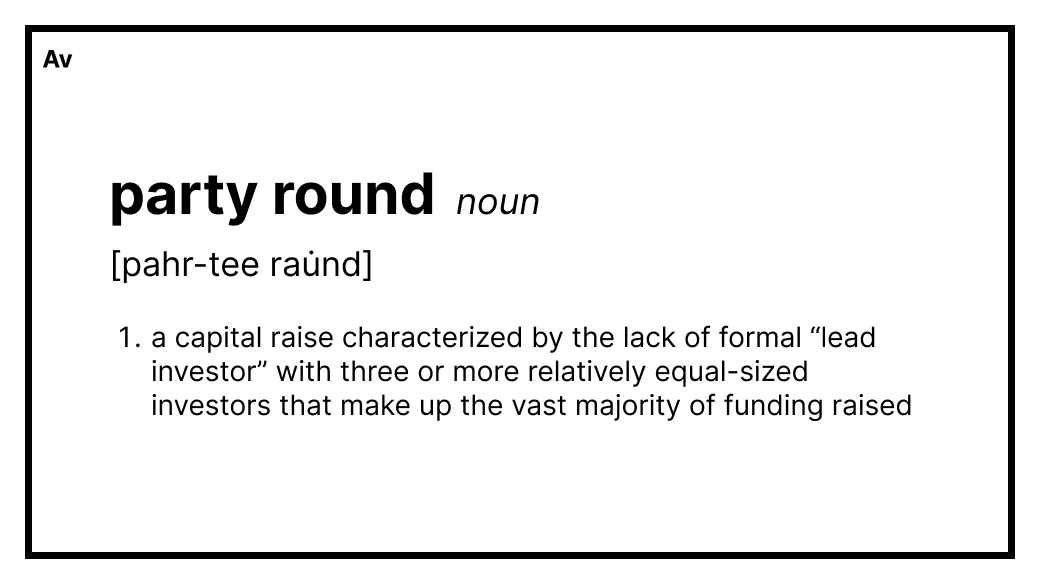Why Party Rounds are bad
Not to be a buzz kill but party rounds are problematic. Let me explain.
As a venture capitalist, I tend to avoid participating in ‘party rounds’ — large rounds with no clear lead investor. On paper, party rounds have some advantages. They allow founders to raise funds quickly by accepting checks from a wide range of angel investors, small funds, etc. This spreads risk and means no single investor negotiates special rights like a board seat or information rights. However, beneath this strategy lies serious drawbacks that can literally be the death of a startup.
Lead investors play a huge role in a company’s success. First, they conduct comprehensive diligence (not always but 🤷🏽♀️). This establishes confidence in the deal. The lead will then negotiate the terms, setting the valuation (again not always the case), and deal structure. Leads often leverage their brand and network to validate & send signals that attracts prestigious co-investors. Beyond fundraising, they also provide crucial value—add through recruiting, business development, and operational support.
The most glaring reason why you need a lead investor is financial support. VC funds are structured to provide both primary capital for new investments, as well as follow-on reserves to support existing portfolio companies. A typical fund might allocate 60-70% of committed capital for new deals, reserving 30-40% for follow-ons. For startups, securing a lead means gaining access to these reserves when you need them most (i.e bridge/extension rounds).
Companies that raise small seed rounds at high valuations (i.e $2M at $20M post) are the ones I see falling into this trap. Raising $2M at $20M post makes it extremely hard for any lead investor to participate in the round. They won’t be able to secure enough ownership needed to return their fund. What ends up happening is that companies don’t end up attracting leads and just raise from anyone who’s essentially interested in putting in a small check. This has been a recent trend in YC over the last few years.
You need create enough value with the $2M to be able to raise money at a much higher valuation than that $20M valuation in the next round (Series A). I expect many of these companies to raise extension rounds at a lower cap or small uptick in valuation (more dilution).
While party rounds offer that speed and simplicity needed to get back to building, I believe they create more problems that they solve. I strongly encourage startups to only raise party rounds if they are raising a pre-seed or seed at a reasonable valuation. I realize a lot of founders end up raising party rounds because they simply don’t have much of a choice but for those that do have that choice, I strongly encourage you build an investor syndicate that reflects the type of company you want to build.




